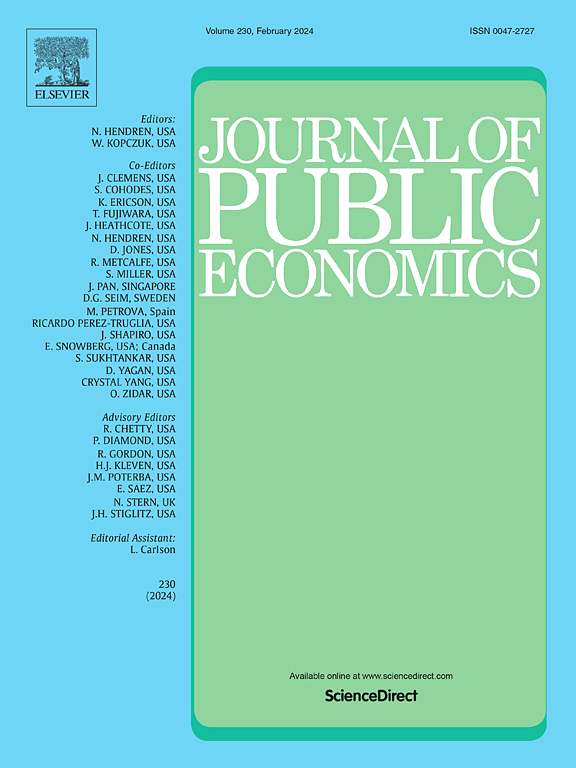企业对账面收入替代性最低税额的反应
IF 3.4
1区 经济学
Q1 ECONOMICS
引用次数: 0
摘要
本文通过考察 1987 年的替代性最低税账面收入调整,研究企业如何应对账面收入替代性最低税(AMT)。通过使用 Compustat 数据和事件研究法,我没有发现企业避税的证据,也没有发现企业对实际生产或投资做出重大反应的证据。企业税基反应意味着账面收入的弹性为-0.03 [-0.63,0.56],小于之前的估计值,因为我对均值回归进行了修正。零结果表明,企业面临着强烈的非税收激励来报告高账面收入。本文章由计算机程序翻译,如有差异,请以英文原文为准。
Firm responses to book income alternative minimum taxes
This paper studies how firms respond to book income alternative minimum taxes (AMTs) by examining the AMT book income adjustment in 1987. Using Compustat data and an event study approach, I find no evidence that firms avoid the tax, and no evidence of significant real production or investment responses. Firm tax base responses imply an elasticity of book income of [,], smaller than previous estimates because I correct for mean reversion. The null results indicate that firms face strong, non-tax incentives to report high book incomes.
求助全文
通过发布文献求助,成功后即可免费获取论文全文。
去求助
来源期刊

Journal of Public Economics
ECONOMICS-
CiteScore
14.10
自引率
2.00%
发文量
139
审稿时长
70 days
期刊介绍:
The Journal of Public Economics aims to promote original scientific research in the field of public economics, focusing on the utilization of contemporary economic theory and quantitative analysis methodologies. It serves as a platform for the international scholarly community to engage in discussions on public policy matters.
 求助内容:
求助内容: 应助结果提醒方式:
应助结果提醒方式:


